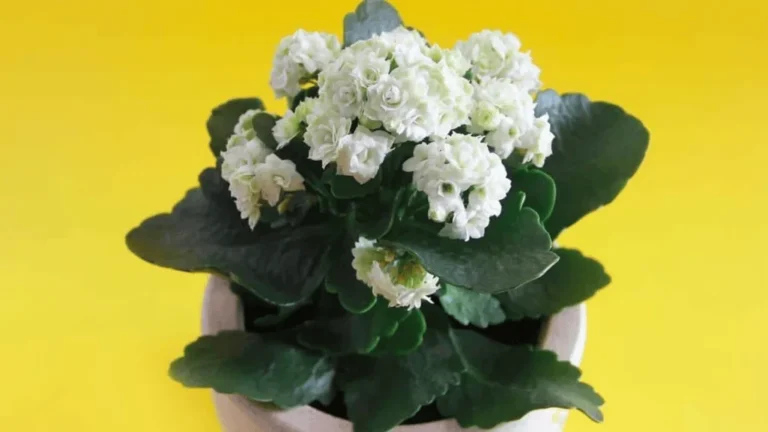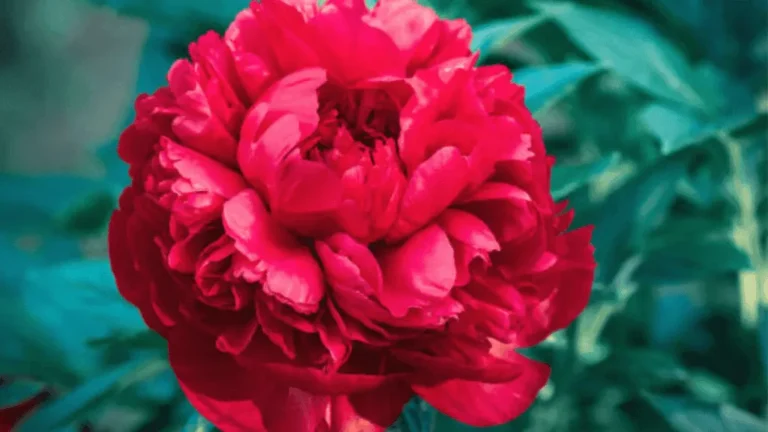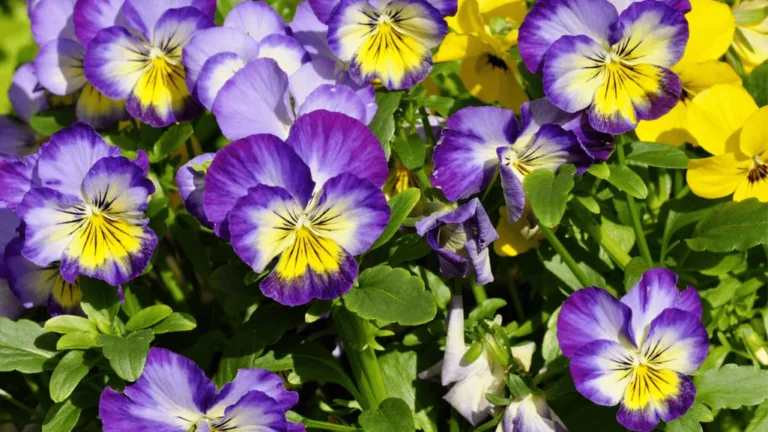Beautiful flowers gardenia Plants For Your homes

Lilies have been a favorite among gardeners for centuries. They bring colors and fragrances to your garden from early summer to fall. These perennials have a long history, dating back to 1500 B.C. They add beauty and charm to your garden.
Today, lilies come in many colors and are versatile. They can grow in different climates, from zones 3 to 9. Let’s learn how to grow lilies, appreciate their resilience, and understand their meanings.
Lilies are not just beautiful to look at. They can live long in gardens and as cut flowers. They come from temperate areas in the Northern Hemisphere and have different meanings in various cultures.
Each Lily genus, from Lilium superbum to the diverse colors, has its place in the garden. By knowing what they need, like cool soil and different light, gardening with lilies can be rewarding. You’ll get tall stems and beautiful blooms.
Key Takeaways
- Lilies offer a long-lasting floral display with some varieties yielding up to 50 blooms per stem.
- The diversity of lily flowers and their adaptability to different zones and soil conditions make them a versatile choice for gardeners.
- Proper cultivation techniques can encourage lilies to thrive in both full sun and partial shade environments.
- A keen understanding of lily plant maintenance can protect these beautiful flowers from pests like the red lily leaf beetle.
- The historical significance and ongoing hybridization of lilies highlight their enduring popularity and potential for innovation in lily gardening.
- Portrayed in ancient Minoan art and bred for unique characteristics, lilies continue to be a rich subject for cultural and horticultural exploration.
Exploring the Diverse World Of Lily Varieties
Lilies are known for their beautiful forms and many colors. They make gardens more beautiful and interesting. By learning about the different types of lilies, we can make our gardens stand out.
Understanding the Different Types of Lilies
The Lilium genus includes many types of lilies. Each type has its own growth habits, blooming times, and flower shapes. Asiatic lilies are famous for their bright colors and early blooms. Oriental lilies are loved for their strong scent and big flowers.
Trumpet lilies have large, bell-shaped flowers and a strong smell. They are perfect for being the center of attention in the garden.
The Unique Characteristics of Popular Lily Varieties
Oriental lilies are popular for their sweet smell and big flowers. Orienpet lilies combine the best of Oriental and Trumpet lilies. They have a wide range of colors and smells. Martagon lilies do well in shady spots and add a natural look to gardens.
Each type of lily adds something special to the garden. Peruvian lilies grow well and come in many colors, perfect for brightening up the garden. Trumpet lilies are tall and elegant, adding height to flower arrangements. Thanks to new plant discoveries, we can now grow many different types of lilies, from tall ones to small ones for borders.
Here is a comparative overview of some popular lily varieties:
| Lily Variety | Typical Blooming Time | Notable Characteristics |
|---|---|---|
| Asiatic Lilies | Early summer | Vibrant colors, early blooming |
| Oriental Lilies | Mid to late summer | Large flowers, strong fragrance |
| Martagon Lilies | Early summer | Dappled shade tolerance, varied colors |
| Trumpet Lilies | Mid-summer | Trumpet-shaped flowers, strong fragrance |
| Orienpet Lilies | Mid-summer | Hybrid vigor, wide color range |
Lilies add beauty and variety to our gardens. They come in many types, each with its own look and smell. This makes them a great choice for anyone who loves flowers.
Planting and Cultivation: A Guide to Growing Lilies
Lilies are known for their bright colors and big presence in gardens. They are a favorite among garden lovers. With the right knowledge of lily bulb planting and care, these flowers can do well and make any landscape look beautiful. This guide will help you learn how to plant lilies the right way.
Choosing the right spot for lily cultivation is key. Lilies do best in places that get six to eight hours of direct sunlight every day. This sunlight helps them make energy, which affects how often and how well they bloom. Also, soil that drains well is important to stop bulb rot and other problems that can slow down growing lilies.
The best time to plant lilies is in the fall, about four weeks before the first frost. This lets their roots get established before winter. A strong root system is important for the lilies to survive different weather.
| Lily Type | Blooming Period | Colors | Height |
|---|---|---|---|
| Asiatic Lilies | Early to mid-summer | Pink, gold, red, almost-black | 2-3 feet |
| Oriental Lilies | Mid to late summer | Pink, white, red, bi-color | 4 feet |
| Trumpet Lilies | Mid-summer | Various shades | Varies |
| Easter Lilies | Spring (around Easter) | White | Varies |
When planting lily bulbs, put them in the soil pointy side up. Make sure they’re buried three times their height deep. Keep them apart, about three times their diameter. This gives each lily enough space to grow well and stay healthy.
Looking after your lilies and watching out for pests, like the red lily beetle, is crucial. But remember, all parts of the lily can be harmful to cats. So, think about pet safety when planting lilies.
The Aesthetic Appeal of Lilies in Landscape Design
Lily flowers add beauty to many landscaping themes, from calm garden paths to bright container displays. With careful planning, lily garden designs boost the look and feel of the garden. They make the sensory experience better.
Incorporating Lily Flowers into Your Garden Layout
By thoughtfully placing lilies, gardeners can make their gardens look great. A common way is to plant them along paths, creating a colorful border. This guides visitors through the garden. Using different types of lilies, like Oriental, Asiatic, and Trumpet, keeps the garden colorful all season.
Lilies
Lilies are tall and colorful, making them great for focal points or backgrounds. They’re key in adding depth and telling stories in the garden. Adding things like trellises or water features near lilies makes the garden even more engaging.
| Garden Feature | Percentage of Gardens Implementing Feature | Impact on Design |
|---|---|---|
| Layered Lily Planting | 70% | Creates depth with taller lilies at the back and shorter in front |
| Focal Point Flower Beds | 50% | Enhances garden aesthetics significantly |
| Container Gardens with Sturdy Pots | 75% | Provides stability and enhances visual impact |
| Vertical Lily Displays | 70% | Elevates beauty and utilizes vertical space effectively |
| Seasonal Color Schemes | 80% | Ensures continuous color display throughout the year |
The lily garden design combines beauty, diversity, practicality, and sustainability. It ensures gardens look great and stay healthy with good care and creativity.
Caring for Your Lilies: Maintenance and Health
To keep lilies looking great, mix proper planting with regular care and pest control. Good lily plant care makes these beauties last year after year. Learning how to care for lilies can make gardening more fun and beautiful.
Lily Care Tips for a Thriving Garden
Start with the right soil for your lilies. They do well in soil that drains well and has lots of organic matter. Make sure to plant the bulbs the right way, about twice their size deep. This helps them grow and bloom well.
Feeding your lilies is key; use a slow-release fertilizer in spring for strong growth. Water them well, especially when it’s dry. Mulch helps keep the soil moist and cool. For tall lilies, you might need to stake them to keep their big flowers from drooping.
Getting your lilies ready for winter is important. In cold areas, cover the bulbs with straw or leaves to keep them from freezing. In spring, slowly remove the mulch as the weather gets warmer and new growth starts.
Protecting Lily Plants from Common Pests and Diseases
Lilies can face pests like aphids and diseases like botrytis. Check on them often to spot problems early. For aphids, a strong water spray or insecticidal soap works well. If you have botrytis, make sure the plants get good air flow and might need fungicides.
For more tips on planting and lily care, check out this guide at lily care and maintenance.
| Lily Type | Planting Depth | Planting Season | Sunlight Needs |
|---|---|---|---|
| Asiatic Hybrids | 4-6 inches | Autumn/Spring | Full Sun |
| Oriental Hybrids | 6-8 inches | Autumn/Spring | Partial Shade |
| Trumpet Hybrids | 6-8 inches | Autumn | Full Sun to Partial Shade |
Adding lilies care to your garden makes it look better and feels more alive with color and scent. With the right care, your lilies will grow well and bring the beauty of summer to your garden.
Unveiling the Symbolism Behind Lily Flowers
The lily symbolism and lily meaning are deep and varied across cultures and religions. These flowers are not just beautiful but also carry many messages. Each color of lily has its own special meaning, adding to their value.
- White Lilies: These lilies stand for purity. They are often used in weddings and spiritual events to mark new beginnings or honor someone’s passing.
- Pink Lilies: Pink lilies show love and admiration. They are great for showing appreciation to friends or expressing love.
- Red Lilies: Red lilies are all about deep passion. They are perfect for romantic messages, showing strong feelings.
- Orange Lilies: Orange lilies are bright and full of energy. They are perfect for celebrations, symbolizing joy and confidence.
- Yellow Lilies: Yellow lilies bring happiness and thanks. They are ideal for saying thank you or brightening someone’s day.
- Purple Lilies: Purple lilies show respect and dignity. They are great for honoring someone special.
Lilies tell a powerful story. In Greek myths, they symbolize motherhood and new life, tied to Hera and Zeus. In China, they mean 100 years of love and bring luck, symbolizing wealth and prosperity.
Many people learn about the lily symbolism through workshops. These classes teach flower arranging and the deep meanings behind lilies. They make the act of giving and receiving these flowers more meaningful.
Seasonal Blooms: When to Plant and Expect Lily Flowers
Knowing the best time for lily bulb planting can make gardening more fun. By learning when to plant lilies bulbs and when they will bloom, you can plan for a beautiful garden. This ensures your garden looks great season after season.
The Best Time for Planting Lily Bulbs
Getting the timing right for lily planting is key for a beautiful display. Early spring is best when the soil is ready but not too wet. Lilies do well in cooler soil.
Autumn planting is also good, about four weeks before the ground freezes. This lets the bulbs get established for strong growth in the warmer months.
For planting lilies bulbs outside, put them 8–18 inches apart in holes. Make sure their tops are 4–6 inches under the soil. For containers, put the bulbs 4–6 inches deep with the pointy end up.
Lily Blooming Periods and What to Anticipate
Each type of lily blooms at a different time in the lily season. This means you get flowers all through the warm months. Here’s what you can look forward to:
| Lily Type | Blooming Period | Expected Height |
|---|---|---|
| Asiatic Lilies | Early Summer | 1-3 feet |
| Trumpet Lilies | Mid to Late Summer | 5-6 feet |
| Oriental Lilies | Summer | 3-4 feet |
| Tiger Lilies | Late Summer | 3-4 feet |
| Double Oriental Lilies | Summer | 3-4 feet |
To keep these lilies healthy, they need about 1 inch of water a week when they’re growing. Give them a high-potassium fertilizer every couple of weeks from planting lilies until 6 weeks after they bloom. Buy quality lily bulbs close to planting time to keep them fresh. Make sure they’re not in waterlogged soil to prevent rot.
With the right knowledge on planting and caring for lilies, your garden will be full of beautiful blooms all season. This brings joy and color to your garden year after year.
Design Inspirations: Lily Flower Arrangements and Bouquets
Lily flower arrangements are a top pick for adding beauty to any space or event. Their stunning petals and deep meanings, from purity to passion, bring depth and beauty. This section looks at both traditional and new ideas for lily bouquets, showing how to make arrangements that fit different tastes and themes.
Crafting Stunning Lily Bouquets for Any Occasion
Creating a lily bouquet is more than picking flowers; it’s about creating feelings and setting moods. Whether it’s bold Calla lilies in a wedding bouquet or the gentle charm of stargazer lilies in a centerpiece, lilies offer endless creativity. Mixing different lilies with roses, dahlias, and tulips adds texture and color, perfect for weddings or garden parties.
To keep arrangements looking great, remove anthers to avoid pollen stains and use warm water to help blooms open. Adding things like sheet moss or ribbons can make the bouquet look more interesting and sophisticated.
Lily Arrangement Ideas that Elevate Home Decor
Lilies aren’t just for special events; they can also add elegance to everyday spaces. Use wet floral foam as a base and arrange lilies with things like S’mores sticks or pebbles for a pro look. These arrangements can be the centerpiece of a dining table or a quiet corner decoration, showing how lilies can go beyond traditional settings.
These arrangements fit well with both simple and fancy home styles. You can pick from the bright colors of tiger lilies to the calm whites of Easter lilies to match your style and home feel.
Adding lilies to your flowers not only makes spaces look better but also fills them with unique scents. Whether for a big wedding or to make your home feel special, lily arrangements add timeless beauty and luxury. They are a favorite among florists and decorators for this reason.
Propagation Techniques for Lilies: Multiplying Your Blooms
Lily propagation techniques let gardeners multiply their favorite flowers. Learning how to grow lilies improves your garden’s look and keeps these plants going. This guide covers different ways to grow more lilies, helping both new and experienced gardeners.
Dividing and using offsets is a common way to grow more lilies. It’s easy and helps the plants spread. Taking scales from lily bulbs is another good method, often giving you many new plants from one bulb. Bulbils and bulblets, which grow on the stem or at leaf bases, are also great for spreading lilies. These methods use the plant’s own way of making more plants, keeping your garden full and colorful.
| Method | Description | Time to Bloom | Yield |
|---|---|---|---|
| Division | Splitting mature bulbs to form new plants. | 1-2 years | High |
| Scales | Detaching scales from bulbs to grow new bulblets. | 2-3 years | Very high |
| Seed | Growing lilies from seeds. | 2-5 years | Variable |
| Bulbils | Propagating from small bulbs formed in leaf axils. | 1-3 years | Medium |
| Bulblets | Young bulbs from the stem root or between leaves and stems. | 1-2 years | Medium to high |
To succeed in growing lilies, keep your plants healthy and free from diseases. This is key when using methods like scaling. These techniques are great for growing more plants for your garden or for sharing with others. They improve your gardening skills and keep the beauty and variety of lilies alive.
Buying Guide: Where to Find Lily Bulbs for Sale
Starting your lily garden journey means finding the right lily bulbs for sale. It’s key for garden beautification or indoor blooms. Here’s a guide to help you pick the best for your needs.
Choosing the Right Lily Bulbs for Your Garden
Choosing the right lilies is crucial for a beautiful display. Varieties like Asiatic and Oriental lilies have unique traits. Asiatic lilies grow tall and come in many colors. Oriental lilies are taller, with big blooms and a strong scent, perfect for large gardens or arrangements.
Plant lily bulbs in well-draining soil with a neutral pH. Space them 8 to 10 inches apart. You can plant them in fall or spring, before winter or summer extreme temperatures.
Trusted Sources and Nurseries for Quality Lily Plants
It’s important to buy from reputable nurseries or online markets. These places offer a wide selection and ensure the bulbs are healthy. Buying lilies from trusted vendors means getting bulbs ready to grow. Eden Brothers has a wide range, including rare hybrids and the popular 60 Days of Lilies package.
| Variety | Height | Bloom Size |
|---|---|---|
| Asiatic Lilies | 3-4 feet | Small to medium |
| Oriental Lilies | 4-6 feet | Up to 10 inches across |
| Hybrids | Varies | Medium to large |
For variety, look beyond physical nurseries and check online platforms. These offer lilies for sale with detailed descriptions and growing tips. Lilies symbolize purity and renewal, making them a thoughtful gift or way to beautify your space.
Conclusion
As we end our journey with lilies, we see how these special flowers add beauty and life to our gardens. They come in many types and look beautiful, making them a favorite in any garden. Planting lilies is rewarding and lets gardeners show off their design skills. Lily care is important but pays off, keeping the lily looking great all season.
Our article shared how lilies are used in stories and how they thrive in different places. It also talked about how to care for them, like pruning and deadheading. These steps keep the plant healthy and help it bloom more each year.
Lilies have been loved for centuries, not just for their looks but also for their uses in science and medicine. They change our gardens and how we see plants. The lily is more than a garden plant; it stands for growth, healing, and the pursuit of gardening excellence. For those who learn how to care for lilies, the benefits are huge, making them a lasting and precious part of any garden.



























